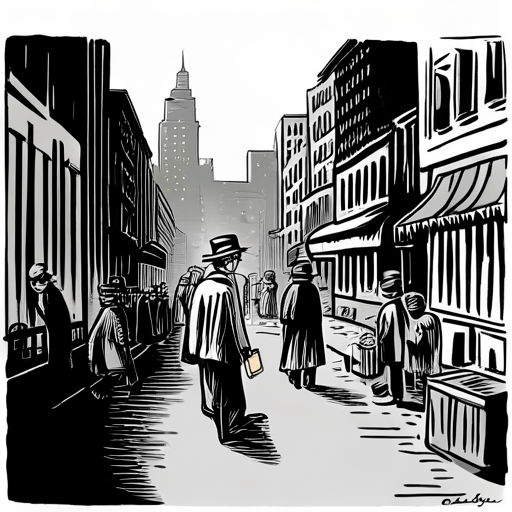Are you struggling to captivate your readers with your writing? Are you finding it difficult to convey your story in a way that truly resonates with your audience? If so, you may need to take a closer look at the point of view you are using in your narrative.
Point of view, or the perspective from which a story is told, can have a significant impact on the way readers perceive and engage with your writing.
In this article, you will gain a deeper understanding of the importance of point of view in literature. You will learn how different perspectives can alter the tone, mood, and emotional impact of a story. Through examples and analysis, you will discover how the choice of point of view can affect character development, plot progression, and overall storytelling.
Additionally, you will gain insights into how to choose the right point of view for your own writing, and how to use it effectively to create a compelling and engaging narrative.
So, let’s dive in and explore the world of point of view in literature!
Table of Contents
Definition and Explanation of Point of View in Literature

You gotta know what’s what when it comes to who’s telling the story in a book or else you might miss key details or misunderstand the plot.
This is where point of view comes in. Point of view refers to the perspective from which a story is told.
It can be from the viewpoint of a character within the story (first person), an outsider looking in (third person), or even an all-knowing narrator who can see into the minds of all the characters (omniscient).
Point of view is important because it affects how the story is presented and how the reader experiences it.
For example, in a first person narrative, the reader is limited to only what the character knows and experiences. This can create a sense of immediacy and intimacy, but also limits the reader’s understanding of the larger picture.
In a third person narrative, the reader has access to multiple perspectives and can see the story from a wider angle. This can create a sense of objectivity, but also distance the reader from the characters.
Understanding the point of view of a story can help you better understand the characters, their motivations, and the overall plot.
Impact of Point of View on the Reader’s Perception

When you read a story from a certain character’s perspective, you can really get inside their head and feel what they’re feeling, making the story more engaging and enjoyable for you as the reader. This is because point of view has a huge impact on the reader’s perception of the story.
Depending on the point of view, the reader may sympathize with or even dislike certain characters. For example, if the story is told from the perspective of the protagonist, the reader is more likely to root for them and feel a connection to them. On the other hand, if the story is told from the perspective of the antagonist, the reader may view the protagonist as the villain and have a negative perception of them.
Additionally, the point of view can also affect the reader’s understanding of the story’s events. For example, if the story is told from a first-person point of view, the reader only sees what the narrator sees and experiences. This can create a sense of mystery and uncertainty, as the reader is only aware of what the narrator is aware of.
On the other hand, if the story is told from an omniscient point of view, the reader is able to see and understand everything that’s happening, which can provide a deeper understanding of the story’s themes and messages. Ultimately, the point of view is a crucial aspect of any narrative, as it shapes the reader’s perception and understanding of the story.
Examples of Point of View in Literature

One may enhance their comprehension of literary works by recognizing how authors manipulate perspectives to elicit specific emotional responses from readers. The use of different points of view can significantly affect how the reader perceives the story’s events, characters, and themes.
For instance, in F. Scott Fitzgerald’s The Great Gatsby, the story is narrated through the eyes of Nick Carraway, a peripheral character who observes the lavish and decadent lifestyle of his neighbor, Jay Gatsby. By using Nick as the narrator, Fitzgerald creates a sense of detachment and objectivity that allows readers to form their own conclusions about the characters’ actions and motives.
Another example of point of view in literature is Harper Lee’s To Kill a Mockingbird, which is narrated by Jean Louise ‘Scout’ Finch, a young girl who grows up in a small Southern town during the 1930s. Through Scout’s innocent and naive perspective, Lee portrays the town’s racial tensions and injustice. By using a child’s point of view, Lee highlights the hypocrisy and cruelty of the adults and emphasizes the importance of empathy and understanding.
In both cases, the authors’ use of point of view enhances their storytelling and evokes a specific emotional response from the reader.
Choosing the Right Point of View for Your Writing

You’ll want to consider who your protagonist is and what kind of story you want to tell before choosing the perspective that will bring your story to life. The point of view you choose will shape the reader’s experience of your story, so it’s important to choose carefully.
If you want to create a sense of intimacy between the reader and your protagonist, you might choose first person point of view. This allows your reader to see the world through your protagonist’s eyes, and can create a powerful emotional connection between reader and character.
On the other hand, if you want to create a more objective view of your story, you might choose third person point of view. This can create distance between the reader and your protagonist, but it can also allow you to explore other characters and events in greater detail.
Ultimately, the point of view you choose will depend on the specific needs of your story. Take the time to consider your options, and experiment with different perspectives to see which one works best for your narrative.
Frequently Asked Questions
How does point of view affect the pacing of a narrative?
When you’re reading a story, the way it’s told can greatly affect the pace at which events unfold. Point of view is a crucial aspect of this, as it determines whose perspective the reader is seeing the story through.
For example, if a story is told from a first-person point of view, the pace may be slower as the narrator takes time to reflect on their thoughts and feelings. On the other hand, a third-person point of view may allow for a faster pace as the reader can see multiple characters’ perspectives and actions simultaneously.
The point of view chosen by the author can greatly impact the pacing of a narrative, and it’s important to consider which perspective will best serve the story being told.
Can changing the point of view alter the overall theme or message of a story?
When you switch the point of view in a story, it can completely change the message or theme being conveyed. For example, if a story is told from a first-person perspective, the reader may sympathize more with the protagonist and view events through their lens.
However, if the story is told from a third-person omniscient perspective, the reader may have a more objective view of the events and see multiple characters’ perspectives. This can lead to a different interpretation of the story’s meaning.
Ultimately, the point of view chosen by the author has a significant impact on how the reader experiences and understands the narrative.
What are some common mistakes writers make when using point of view?
When writing from a specific point of view, it’s important to avoid common mistakes that can detract from the overall impact of your story.
One major mistake is switching between points of view without a clear reason or transition, which can confuse readers and interrupt the flow of the narrative.
Another mistake is failing to establish a strong and consistent voice for your chosen point of view character, which can make them feel generic or undefined.
Finally, be careful not to rely too heavily on exposition or inner monologue to convey information, as this can make the story feel clunky and unnatural.
By avoiding these pitfalls and staying focused on your chosen point of view, you can craft a compelling and engaging narrative that resonates with readers.
How does the reader’s own experiences and biases influence their interpretation of point of view in a narrative?
When you read a narrative, your own experiences and biases can greatly influence how you interpret the point of view. Your personal background, beliefs, and values can shape the way you perceive the characters, events, and overall message of the story.
For example, if you come from a culture that values individualism, you may be more likely to sympathize with a protagonist who breaks away from societal norms, whereas someone from a collectivist culture may view that same character as selfish or rebellious.
It’s important to be aware of your own biases and try to approach the narrative with an open mind, so that you can fully appreciate the author’s intended meaning and message.
Are there any ethical considerations to keep in mind when choosing a point of view for a story?
When choosing a point of view for your story, it’s important to keep ethical considerations in mind. You need to think about how your choice of perspective will affect different groups of people and whether it could be perceived as offensive or harmful.
For example, if you’re writing about a marginalized community, it may not be appropriate to use a dominant perspective that perpetuates stereotypes or reinforces oppressive beliefs. Instead, you may want to consider using a first-person or multiple perspective to give voice to those who are often silenced.
Ultimately, your choice of point of view can have a significant impact on how your story is received and it’s important to approach it with care and intentionality.
Conclusion
In conclusion, point of view is an essential element in crafting a narrative. It determines the perspective through which the story is told and shapes the reader’s understanding of the events and characters.
The use of first, second, or third person point of view can greatly impact the tone, mood, and overall message of a story. It’s crucial for writers to carefully consider the point of view they choose for their narrative as it can greatly affect how the reader engages with the story.
By understanding the importance of point of view, writers can effectively convey their message and create a powerful and memorable story that resonates with their audience.
